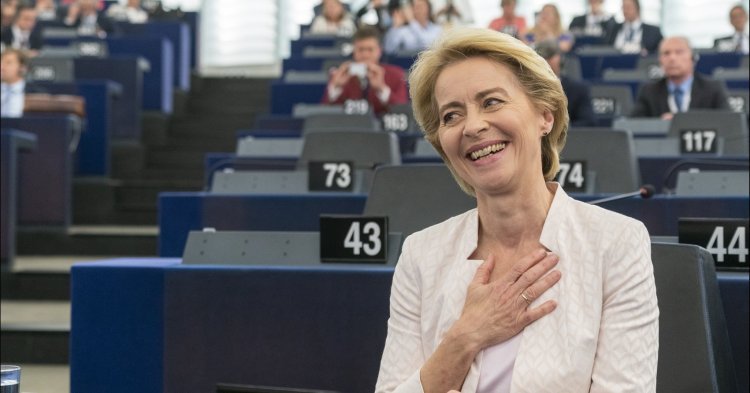Knowing this, it was hardly a surprise that von der Leyen opened her speech by addressing the health crisis. The President duly expressed her gratitude for health workers, and detailed the EU’s achievements in managing the pandemic, such as ensuring the flow of medical supplies across borders in Europe. Besides this, the speech listed a handful of ideas for strengthening the ‘European Health Union’.
More money for health?
Von der Leyen started by mentioning the EU4Health programme, and calling for more money. This is unsurprising: the Commission had originally proposed a spending of €9.4 billion for the programme in 2021–2027, encompassing goals like creating a pool of healthcare professionals who can be sent anywhere in the EU to fight crises, as well as promoting medical innovations. At the European Council meeting in July, however, the budget deal reached between member state leaders only left €1.67 billion for the programme.
On this issue, von der Leyen was speaking to a sympathetic audience. Already in July, the European Parliament demanded the member states to justify this big reduction in the programme’s budget. The Parliament’s approval is still required for the EU’s 2021–2027 budget (the Multiannual Financial Framework) to pass. That said, the Parliament will hardly have the time or leverage to tear up the hard-negotiated deal before the new budget is meant to take effect in January. MEPs will have to pick their battles, but von der Leyen seems to want health to be one of them.
Stronger health agencies
As we wrote in our previous article, different actors, throughout the summer, have demanded more powers for the EU’s health-related agencies: EMA (European Medicines Agency) and ECDC (European Centre for Disease Prevention and Control). Von der Leyen endorsed these ideas in her speech, but failed to lay out what specific reforms are needed. In fairness to the President, a wide-ranging and sometimes emotional speech is not the right place to bore viewers with deep detail.
The speech also featured another familiar idea: the creation of a European equivalent for the American Biomedical Advanced Research and Development Authority (BARDA), which would likely prepare anti-pandemic countermeasures as one of its tasks. Von der Leyen pledged that “we will build a European BARDA” – more news will certainly follow.
Stepping up as a global leader
In a special nod to Italy, which was devastated by the pandemic in the spring, von der Leyen promised to convene a “Global Health Summit” in Italy next year, when the Italian government will hold the G20 presidency. This idea brings together the pandemic and global leadership and foreign policy, to which von der Leyen dedicated lengthy portions of her speech.
Further along in her address, the President made a thinly veiled attack against Donald Trump by saying European leadership isn’t about “self-serving propaganda” or “Europe First”, but about giving serious answers. Now that Trump’s United States has refused to take any leadership or responsibility in handling the pandemic, Europe has an opportunity to step up.
Ensuring that COVID vaccines get distributed all across the world is a challenge that world leaders must overcome before life can go back to normal. Citing the EU’s existing investments in vaccine research, von der Leyen indicated that Europe is willing to lead. What a foreign policy feat it would be for Europe and the EU if we can put an end to the pandemic! Given the United States’ recent track record in global leadership and in ensuring equal and affordable access to healthcare, the natural captain of the team should surely come from our side of the Atlantic.
New health competences for the Union
Ursula von der Leyen made clear that, whatever the EU has achieved in combatting the pandemic so far, it has been achieved without proper competences in the field of health. As it stands, the EU can only ‘support, coordinate or complement’ the member states’ actions in health protection. The President encouraged the issue to be raised at the upcoming Conference on the Future of Europe, which is intended as a wide-reaching public discussion on the EU’s role and powers. It is noteworthy that, throughout an 80-minute speech, this was the only mention given to the Conference, which had previously been touted as one of the Commission’s flagship initiatives.
Was the mention of expanding the EU’s health competences an implicit call to open the EU treaties for revision? Changing the treaties is certainly the standard and most proper way to bring new policies under EU competence. Yet reforming the treaties has so far not been on the cards for the near future. Once the next round of treaty reform begins, will the memory of the pandemic still be recent enough to give momentum for upgrading the Union’s health competences?



Follow the comments: |
|
